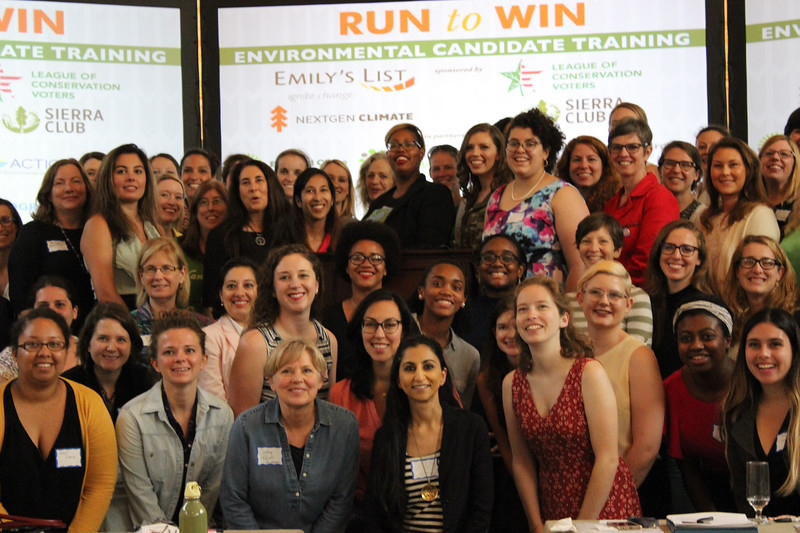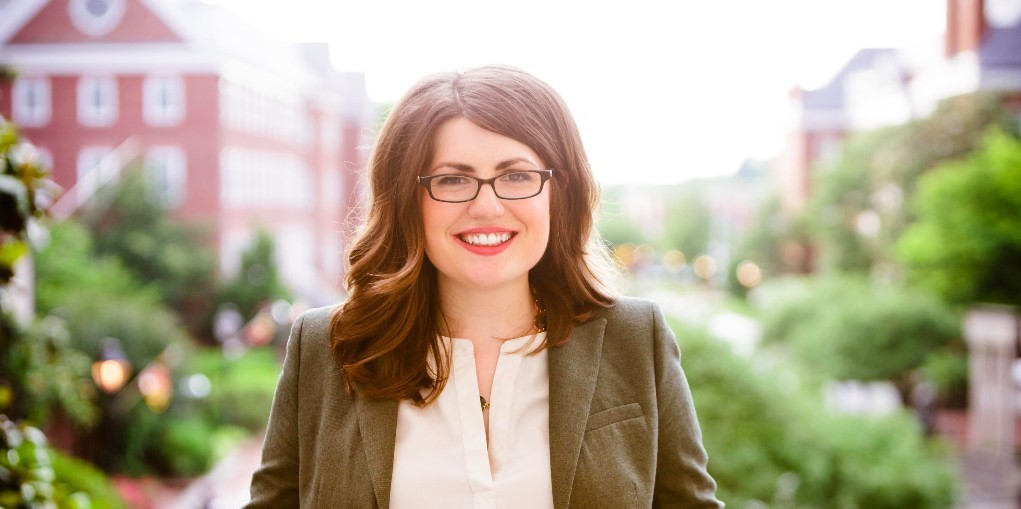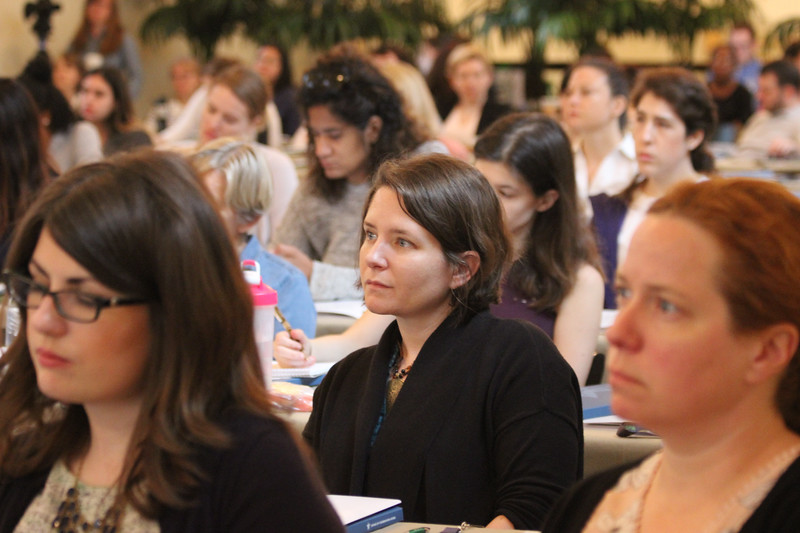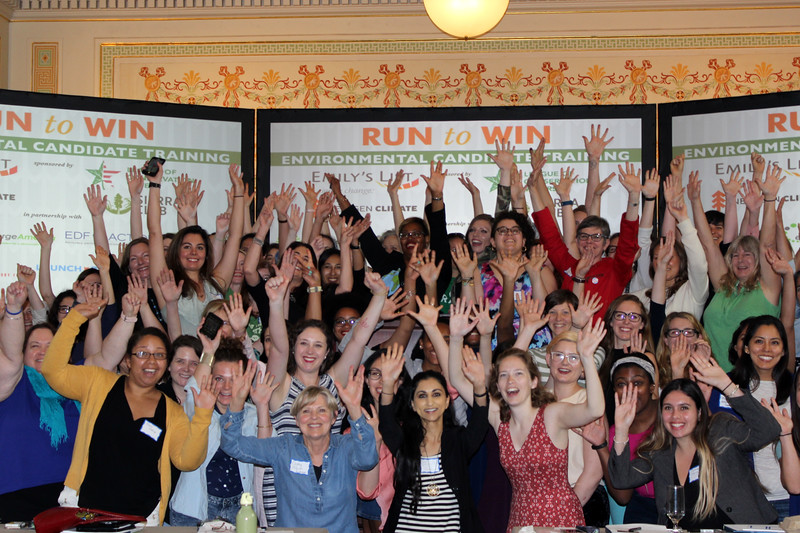December 2023 Top 5 – Year in Review
Dec 20, 2023
The 2018 midterm elections were historic: women, people of color and LGBTQ+ candidates ran for office – and won up and down the ballot – in record numbers. From the very beginning, it was clear that this new group of diverse candidates emerged, in part, because they were concerned by President Trump’s attacks on our democracy, health, equal rights and the environment, and running for office was an effective way to make change and fight for their communities.
We at LCV were determined to help translate this energy to success on the 2018 ballot. So, early in the cycle, LCV Action Fund joined EMILY’s List, Rachel’s Action Network, and many of our partners in the climate and environmental justice movement to support and help prepare pro-environment women candidates to run for office. And given its success, we’re at it again, training women candidates to run for office in 2020.

In 2017, the day after the Peoples Climate March, which thousands of people attended, nearly 100 pro-environment women who were considering running for office attended our joint candidate training. Of the women who joined us that day, 20 were on the ballot last cycle, running for offices ranging from city and town councils to county commissions to state legislatures to the U.S. House. And in the end, eight won their races.
One of these eight successful women is Sarah Elfreth, the new state senator for Maryland’s 30th District. At the age of 30, she’s made history as the youngest woman ever elected to the Maryland state Senate, one of the first two women to represent Anne Arundel County in the Senate and has been called a “rising star in Maryland politics.” She got to know our colleagues at Maryland LCV when she worked in government affairs for the National Aquarium. At the State House, Elfreth worked to help pass legislation that banned shark finning and toxic microbeads. Maryland LCV encouraged Elfreth to attend our candidate training and ultimately endorsed her in her Senate race.

We recently asked Elfreth what attending the training and having Maryland LCV’s support meant to her campaign. “I’m fortunate to represent a district where protecting the Chesapeake Bay and standing up for the environment is the most important issue to our community. Maryland LCV and other environmental volunteers came out week after week to knock on doors and talk to voters on behalf of the campaign. I wouldn’t be in the Senate or about to take my seat on the Chesapeake Bay Commission without the help of Maryland LCV and its members.”
Pro-environment women like Elfreth are the future of our country. Elfreth campaigned on a strong environmental platform, stating “The Chesapeake Bay is our greatest natural resource, an economic engine, and a key to our way of life. As your senator, I will work hard to increase oyster populations and sustain marine life, create clean energy jobs, commit Maryland to 50 percent renewable energy use by 2030, and fight to protect our forests and critical areas.”

Analysis has shown that when women are elected to office, it bodes well for the environment. The “When Women Lead” report on LCV’s National Environmental Scorecard by our friends at Rachel’s Network shows that between 2006 and 2017, “the average LCV score of women in the House…was 71 compared to 40 among men… The average LCV score of women Senators…was 73 compared to 42 from their male counterparts.” Two of the states at the leading edge of environment protection, Rhode Island and Oregon, are led by women. Governor Gina Raimondo has worked to bring clean energy jobs to the Ocean State, especially expanding offshore wind. Under Governor Kate Brown, Oregon passed the nation’s first “coal-to-clean” law, which will completely phase out dirty coal power by 2030 and double the state’s reliance on renewable energy by 2040.
Furthermore, if we are to achieve just climate solutions that benefit all communities and address environmental inequities that disproportionately impact communities of color, we need to keep building a bench of pro-environment leaders of diverse backgrounds at the state and local level – currently, much of our progress on climate is occurring at the state and local level, and this is our pipeline of future governors and members of Congress. And this pipeline needs to include people from communities and backgrounds that are underrepresented as decision makers for this country – that includes women, people of color, LGBTQ+ individuals, young people, and people of diverse religious and ethnic backgrounds.
This is a winning strategy. In the midterm elections, we witnessed the power of a field of congressional candidates who reflected the values and diversity of our country: We now have a pro-environment majority in the House and the most diverse caucus in history. We need to continue this trend in the 2020 cycle.

LCV and our state partners are committed to helping recruit and train this next generation of diverse pro-environment elected officials. We are dedicated to helping build a truly representative democracy where our leaders share the pro-environmental values of the vast majority of this country. That’s why LCV Action Fund was excited to partner again with EMILY’s List, this time for a training the day after the Women’s March. And we are going to work more closely than ever before with our state LCV partners to identify, recruit, train, elect and hold accountable the new pro-environmental leaders who will move our country towards a future of clean air, clean water and clean energy for all.